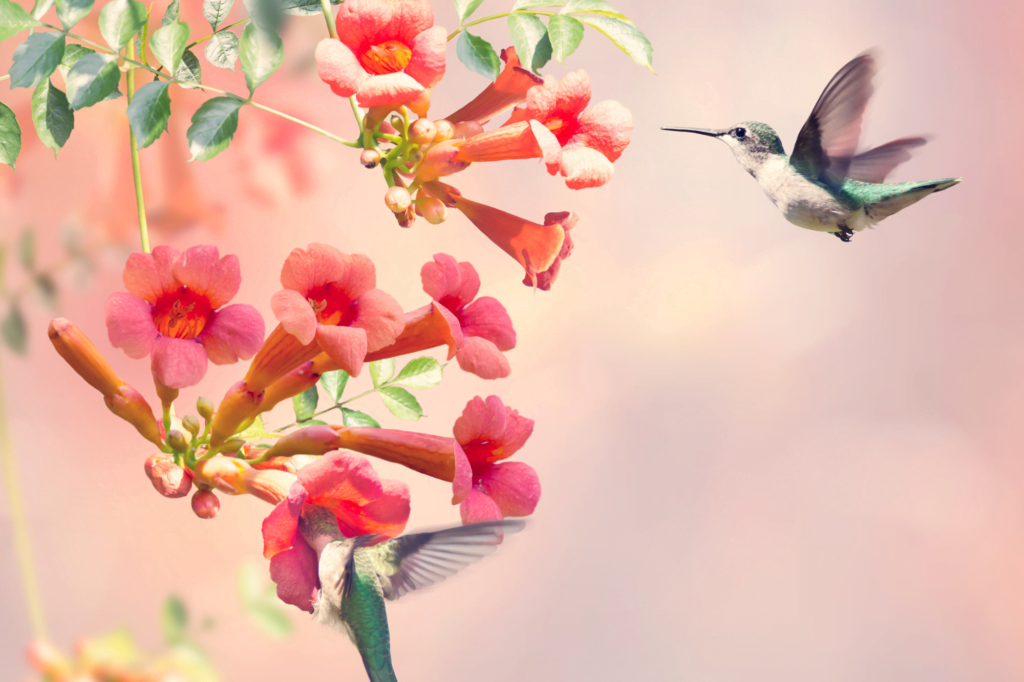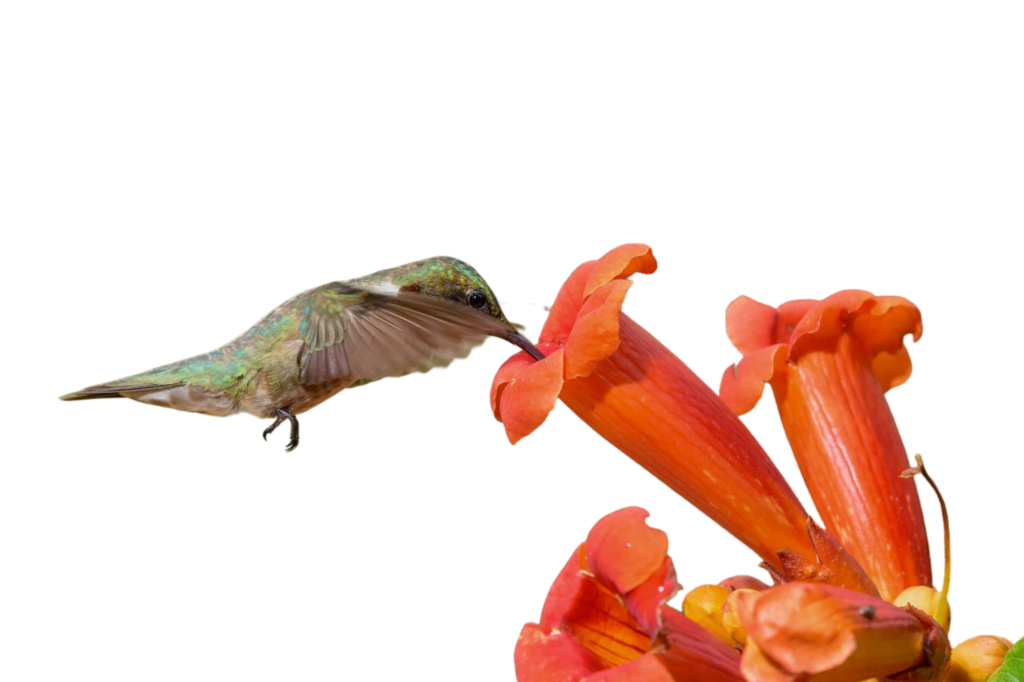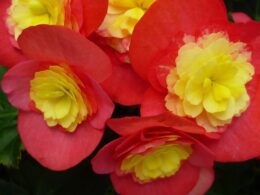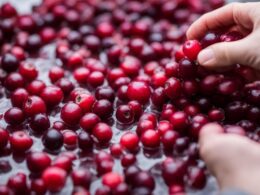If you’re a bird enthusiast or gardener, you may be wondering whether trumpet vine pods pose any potential danger to your feathered friends. While the trumpet vine (Campsis radicans) is a popular climbing plant renowned for its vibrant blooms and attractive foliage, it’s important to take precautions when it comes to the safety of birds.
In this article, we will explore the potential risks associated with trumpet vine pods and their toxicity to birds. We will also offer practical tips and suggest alternative bird-friendly plants that can help you create a safe and welcoming environment for your avian companions.
Post Summary:
- Trumpet vine pods have the potential to be toxic to birds.
- Choosing bird-friendly plants for your garden is essential for the health and safety of your feathered friends.
- Preventive measures can help minimize potential risks to birds from trumpet vine pods.
- There are alternative bird-friendly plants that can be used instead of trumpet vine.
Understanding Trumpet Vine Pods
If you’re a bird lover, you have probably heard of the trumpet vine. This plant is known for its beautiful trumpet-shaped flowers and attracts numerous pollinators, including birds. However, as with any plant, it’s essential to understand its characteristics and any associated risks.
Trumpet vine pods are the fruit of the trumpet vine. They are long, slender, and green, with a woody texture and small seeds inside. These pods range in size from two to six inches and are commonly found on the plant during the autumn months.
When choosing plants for your garden, it’s crucial to consider their impact on your avian visitors. Trumpet vine pods can potentially pose a threat to the health and safety of birds, making it essential to keep them out of reach.
The Risks of Birds Consuming Trumpet Vine Pods
If you have trumpet vines in your garden, it’s important to be aware of the potential risks they pose to your feathered friends. While these plants can be aesthetically pleasing and attract a variety of wildlife, including birds, their pods may contain toxins that can harm your avian visitors.
The exact level of toxicity of trumpet vine pods for birds is not entirely clear, and research in this area is ongoing. However, it is known that these plants contain a sap that can cause skin irritation and allergic reactions in humans, and it is possible that birds may experience similar reactions upon contact. Additionally, if birds ingest the trumpet vine pods, there is a risk of digestive issues and other health problems.
If you notice trumpet vine pods in your bird’s feeding area or around their habitat, it is best to remove them immediately. If you are unsure whether a particular plant is safe for birds, it is always better to err on the side of caution and avoid using it.
Ensuring Bird Safety and Soundness
If you have trumpet vines in your garden, it’s crucial to take steps to ensure the safety and well-being of birds in the area. Here are some practical tips and guidelines to follow:
- Prune regularly: Keep your trumpet vines pruned to minimize the risk of birds accidentally ingesting the pods. This will also help to control the growth of the vines and prevent them from becoming too invasive.
- Place bird feeders away from vines: If you have feeders in your garden, make sure they are positioned away from areas where trumpet vines are growing. This will reduce the likelihood of birds accidentally consuming the pods while feeding.
- Monitor bird behavior: Keep an eye on the birds in your garden and look out for any signs of illness or distress. If you suspect that a bird has consumed a trumpet vine pod, contact your local wildlife rehabilitation center immediately.
- Choose bird-friendly plants: Consider replacing your trumpet vines with bird-friendly plants that are non-toxic and safe for birds to consume. Some examples include sunflowers, zinnias, and marigolds.
By taking these simple steps, you can help to minimize the potential risks posed by trumpet vine pods and create a safe environment for birds to thrive.
Bird-Friendly Alternatives to Trumpet Vine
While trumpet vine pods may be a potentially hazardous plant for birds, there are plenty of bird-friendly options that can add color and life to your garden.
Here are a few suggestions:
| Plant | Benefits |
|---|---|
| Sunflowers | Attracts birds and bees with its bright flowers and seeds |
| Bee Balm | A favorite of hummingbirds with its vibrant red flowers |
| Purple Coneflower | Provides food for birds with its seeds and attracts bees and butterflies |
| Butterfly Bush | Produces fragrant flowers that attract birds, bees, and butterflies |
These plants not only provide a safe habitat for birds, but they add beauty and diversity to your garden. By selecting bird-friendly plants, you can help contribute to the overall health and happiness of your feathered friends.
Bird-Friendly Alternatives to Trumpet Vine
If you are concerned about the potential risks of trumpet vine pods for birds, there are many bird-friendly plants that you can choose from instead. By selecting the right plants, you can create a safe and welcoming environment for your feathered friends to enjoy.
Native Plants
One option is to choose native plants that are well-adapted to your local climate and ecosystem. Not only are these plants typically more resistant to pests and diseases, but they also provide important food sources and habitats for native bird species.
Flowering Shrubs
Another great option is to plant flowering shrubs that produce nectar-rich blooms. These plants can attract a wide variety of birds, especially hummingbirds, which rely heavily on nectar as a food source. Some popular options include butterfly bush, red twig dogwood, and weigela.
Berry-Producing Shrubs
Many bird species also rely on berries as a food source. Consider planting shrubs that produce berries, such as elderberry, winterberry, and serviceberry. These plants not only provide a nutritious food source but also create a vibrant and colorful landscape for your garden.
Overall, there are many great options for creating a bird-friendly garden. By choosing the right plants and implementing preventive measures, you can help ensure the safety and well-being of your feathered friends.
FAQ
Q: Are trumpet vine pods poisonous to birds?
A: While further research is needed to fully understand the potential toxicity of trumpet vine pods for birds, it is recommended to err on the side of caution. It is best to prevent birds from consuming these pods to ensure their safety.
Q: What are trumpet vine pods?
A: Trumpet vine pods are the seed pods that develop after the trumpet vine plant flowers. These pods contain seeds and are typically elongated and cylindrical in shape.
Q: How can I ensure bird safety when it comes to trumpet vine pods?
A: To ensure bird safety around trumpet vine pods, it is recommended to keep birds away from these pods. This can be done by creating barriers or removing the pods from the area where birds have access. Providing alternative bird-friendly plants can also help divert their attention.
Q: What are some bird-friendly alternatives to trumpet vine?
A: There are several bird-friendly plants that can be used as alternatives to trumpet vine. Some examples include sunflowers, honeysuckle, and butterfly bushes. These plants not only provide a safe environment for birds, but they also attract them with their flowers and nectar.











